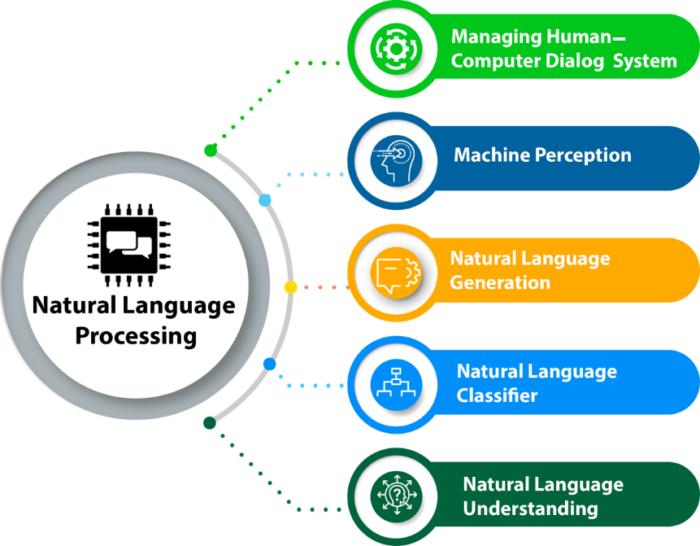As we move further into the digital age, businesses are increasingly leveraging advanced technologies to streamline their operations, enhance customer experiences, and boost overall productivity. One such technology that has seen significant growth and innovation in recent years is Natural Language Processing (NLP). In 2025, NLP is at the forefront of smarter automation, enabling businesses to automate complex tasks, understand customer needs better, and improve decision-making. NLP, a branch of artificial intelligence (AI), focuses on enabling machines to understand, interpret, and generate human language in a way that is both meaningful and valuable.
By combining the power of AI and machine learning (ML), Natural Language Processing allows businesses to automate a wide range of processes, from customer service interactions to content generation and data analysis. The impact of NLP on business automation is profound, transforming the way companies operate, interact with customers, and make data-driven decisions. This article delves into how NLP is revolutionizing automation in 2025 and explores the benefits and challenges that come with its adoption.
Understanding Natural Language Processing and Its Role in Automation
Natural Language Processing is a field of AI that focuses on the interaction between computers and human languages. At its core, NLP allows machines to process and understand large amounts of natural language data, enabling them to perform tasks such as text analysis, language translation, sentiment analysis, and speech recognition. The key to NLP’s effectiveness lies in its ability to bridge the gap between human language and machine understanding, making it a powerful tool for automating a variety of business processes.
In 2025, the role of NLP in automation has expanded significantly. Previously, automation was limited to repetitive tasks that followed structured, rule-based instructions. However, with the advent of NLP, businesses can now automate more complex tasks that require an understanding of unstructured data, such as customer feedback, social media posts, emails, and even voice interactions. By processing and analyzing this unstructured data, NLP enables smarter automation that can make sense of language nuances, context, and sentiment, improving overall efficiency and decision-making.
NLP in Customer Service Automation
One of the most prominent applications of NLP in 2025 is its use in customer service automation. With the growing demand for faster, more personalized customer support, businesses are increasingly turning to NLP-powered chatbots and virtual assistants to handle customer inquiries. These AI-driven solutions are designed to understand and respond to customer queries in natural language, providing a seamless and efficient experience for users.
NLP-powered chatbots are capable of handling a wide range of customer interactions, from simple FAQs to more complex requests that require context and understanding. For example, businesses can use AI and automation tools to build intelligent chatbots that can resolve customer issues, recommend products, and guide customers through troubleshooting processes. As NLP algorithms become more sophisticated, these chatbots are also capable of recognizing customer sentiment and tailoring responses accordingly, enhancing the overall customer experience.
In addition to chatbots, NLP is being integrated into voice-based virtual assistants such as Amazon Alexa, Google Assistant, and Apple’s Siri, enabling customers to interact with businesses using natural speech. These assistants can answer questions, process orders, and provide personalized recommendations based on customer preferences and past interactions. This form of automation not only saves businesses time but also improves the overall customer experience by providing instant support and personalized engagement.

NLP for Content Creation and Marketing Automation
Content creation and marketing are critical areas where NLP is driving smarter automation. In 2025, businesses are using NLP to generate high-quality content, analyze customer behavior, and optimize marketing campaigns. With the help of AI tools powered by NLP, businesses can automate tasks such as content generation, email marketing, and social media engagement, reducing the time and resources required to manage marketing efforts.
One of the most significant applications of NLP in content creation is the ability to generate human-like text for blogs, product descriptions, and social media posts. NLP models such as OpenAI’s GPT (Generative Pre-trained Transformer) can produce high-quality written content that is indistinguishable from content written by humans. These AI models are trained on vast datasets, allowing them to understand language patterns, context, and tone, and produce relevant content based on specific inputs.
In marketing automation, NLP plays a vital role in segmenting audiences, personalizing content, and optimizing campaigns. By analyzing customer data, businesses can use NLP algorithms to identify patterns and preferences, allowing them to deliver tailored marketing messages. For instance, businesses can automate personalized email campaigns by using NLP to analyze customer interactions and deliver relevant offers based on their behavior. This level of automation not only improves the customer experience but also drives higher engagement and conversion rates.
To further explore how NLP is transforming marketing, businesses can explore digital marketing strategies that incorporate automation tools to increase efficiency and optimize ROI.
NLP in Data Analysis and Decision Making
Data analysis is another area where NLP is making a significant impact on automation. In 2025, businesses are increasingly using NLP to analyze unstructured data from various sources, including social media, customer reviews, and online forums. By processing and interpreting this data, NLP helps businesses gain valuable insights into customer sentiments, market trends, and competitor behavior, all of which inform smarter decision-making.
For example, businesses can use NLP algorithms to perform sentiment analysis on customer reviews and social media posts to gauge public opinion about their products or services. By automating the process of sentiment analysis, businesses can quickly identify potential issues, track brand reputation, and adjust their marketing strategies accordingly. Similarly, NLP can be used to automate competitive intelligence, helping businesses monitor competitor activities and identify market opportunities.
In the finance and healthcare sectors, NLP is being used to analyze large volumes of unstructured data from medical records, financial reports, and research papers. This allows organizations to make data-driven decisions, identify emerging trends, and improve operational efficiency. As machine learning and NLP models continue to evolve, the accuracy and speed of data analysis will only improve, enabling businesses to make more informed, real-time decisions.
For businesses looking to optimize their SEO strategies, NLP can be used to improve search engine optimization by analyzing search intent, keywords, and user behavior, ultimately driving more organic traffic.
NLP for Personalization and Customer Insights
Personalization is a critical component of modern business success. In 2025, NLP is enabling businesses to personalize customer interactions and recommendations more effectively than ever before. By analyzing customer preferences, browsing history, and previous interactions, NLP algorithms can deliver highly personalized content, product suggestions, and services.
For example, in the retail sector, businesses are using NLP to personalize shopping experiences on their websites and mobile apps. By analyzing customer interactions and purchase history, NLP-powered recommendation engines suggest products that are most likely to appeal to each individual customer. This not only enhances the customer experience but also drives higher sales and customer loyalty.
NLP is also being used to analyze customer feedback and surveys, providing businesses with valuable insights into customer satisfaction and areas for improvement. By automating the process of feedback analysis, businesses can quickly identify patterns in customer sentiment and make data-driven decisions to improve their offerings.
The Future of NLP in Automation
The future of NLP in automation looks incredibly promising. As NLP algorithms become more advanced, they will be able to understand and generate language with even greater accuracy and nuance. In 2025 and beyond, NLP will continue to enhance automation across industries, enabling businesses to automate increasingly complex tasks while providing more personalized and efficient customer experiences.
The integration of NLP with other technologies such as AI technologies tools, machine learning, and the Internet of Things (IoT) will enable businesses to create fully automated systems that can process and analyze data in real time, make decisions, and interact with customers autonomously. As these technologies evolve, businesses will have access to smarter automation tools that can optimize every aspect of their operations, from customer service and marketing to data analysis and decision-making.
The continued adoption of NLP in automation will also have a profound impact on startup growth strategies, providing new businesses with the tools they need to scale quickly and efficiently. By leveraging NLP-powered automation tools, startups can compete with larger organizations by improving customer service, optimizing marketing efforts, and making data-driven decisions.
Conclusion
Natural Language Processing is revolutionizing the way businesses approach automation in 2025. By enabling machines to understand, interpret, and generate human language, NLP is enhancing automation across a wide range of applications, from customer service and content creation to data analysis and decision-making. As NLP technology continues to evolve, businesses that embrace this innovative approach will be able to streamline operations, improve customer experiences, and drive growth.
For businesses looking to stay ahead of the competition, incorporating NLP into their online business strategy is a must. As we move into the future, NLP-powered automation will continue to be a game-changer, providing businesses with smarter, more efficient tools for success.

